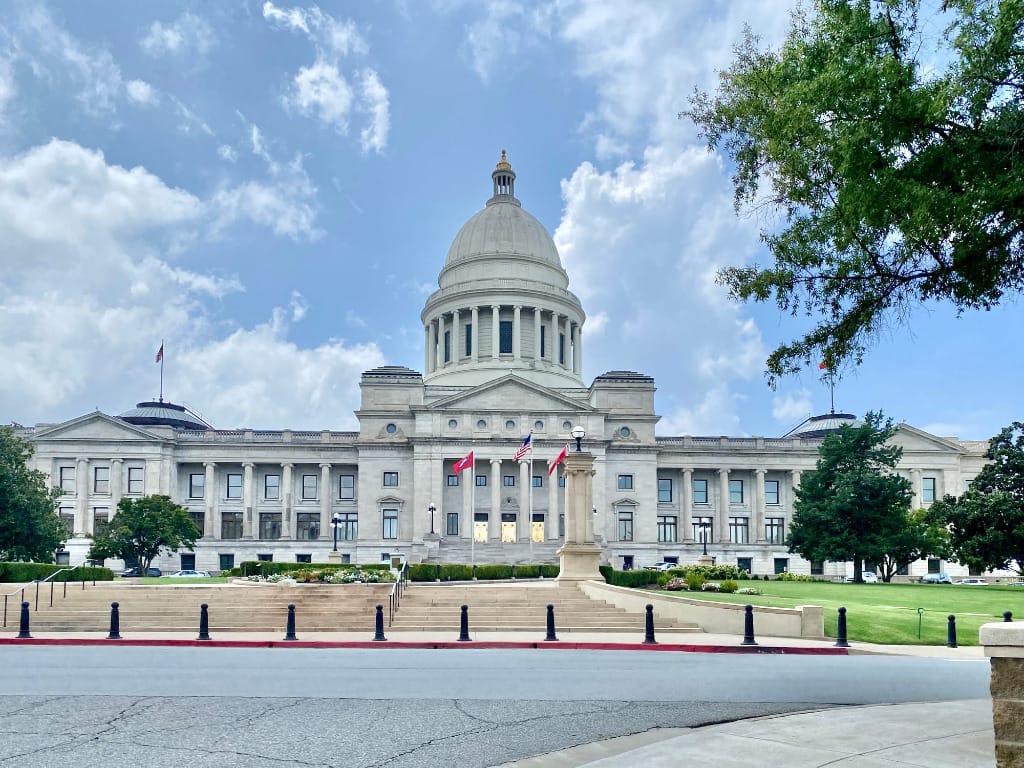Arkansas, Arizona, New Hampshire Open for BEAD Apps
At least 20 states have reached the milestone.
Jake Neenan

WASHINGTON, Jan. 7, 2025 – Three more states this week opened the door to applicants seeking funding under a federal program designed to close the digital divide in rural America.
That announcements by Arizona, Arkansas, and New Hampshire meant that at least 20 states have reached the same application milestone under the Broadband Equity, Access, and Deployment program.
The Infrastructure Investment and Jobs Act of 2021 set aside $42.5 billion for getting broadband to every home and business in the country, with states and territories getting individual allocations to dole out themselves. Arkansas began taking applications for funding Tuesday, with Arizona and New Hampshire getting started on Monday.
Arkansas and Arizona received $1.02 billion and $993 million respectively, while New Hampshire, with a relatively smaller and less remote unserved population, took home $196 million. The eligible location count is 84,000 in Arkansas, 184,298 in Arizona, and 9,527 in New Hampshire, according to data from the states' challenge processes. States had to accept and adjudicate challenges to government broadband data before funding projects under the program.
Arkansas and Arizona are both planning on multiple rounds of applications in an effort to ensure universal coverage. States can also negotiate directly with providers.
At least three states have put forward their preliminary awards under the program, spending plans that will have to be approved by the National Telecommunications and Information Administration before projects get underway. NTIA chief Alan Davidson is stepping down Jan. 20, and it’s not clear who will head the agency under the incoming Trump administration.
Republicans have strongly criticized the program, in part because of its preference for fiber broadband. That and satellite ISP-owner Elon Musk becoming a close advisor to Trump have sparked speculation that rules might be changed going forward but states have been moving ahead under the current project selection rules.
States can fund non-fiber projects when fiber exceeds a cost threshold they decide on, or if no fiber providers show interest in a given area. Sen. Ted Cruz, R-Texas, Chairman of the Senate Commerce Committee, has promised to “review” the fiber preference and other spending provisions in his new role.
In the states that have made tentative awards—Louisiana, Nevada, and Delaware—fiber has been the go-to technology, covering at least 80 percent of eligible locations in each state. Louisiana and Nevada did award money to satellite providers, with Nevada tapping Amazon’s nascent Project Kuiper service. Louisiana was still hammering out the terms of the deal when it released its draft spending plan and hasn’t said which satellite provider it’s going with.
Massachusetts is set to open its application window Wednesday, with Michigan following Thursday.









Member discussion